Women who have been incarcerated face additional challenges compared to the general female population. They are far more likely to struggle with mental health issues, domestic violence, drug use, and poor sexual health.1 Most justice-involved women have children as well. Women have different needs than men, and it is important to take their unique requirements into consideration when they are returning to the community.
Healthcare
Most women in jail or prison are of childbearing age. Roughly three percent of women entering prisons are pregnant, and between six to ten percent of women in local jails are pregnant. 2 Unfortunately, many women are unable to receive proper healthcare during their incarceration and upon release.
- Programs such as Motherhood Beyond Bars in Georgia offer support before, during, and after pregnancy. To see if there are programs in your area, search for “free birthing support resources and programs near me.”
- Just Birth Space offers free, virtual peer support groups and parenting classes for new and expectant mothers. They also offer the ability to chat with a doula or lactation specialist for free support.
- Additionally, check to see if you qualify for Medicaid to receive the healthcare needed for you and your child.
Another healthcare-related issue is something called period poverty, which is a lack of access to menstrual products, education, hygiene facilities, or a combination of these needs. Feminine products are expensive, and when managing a tight budget, they may not be a priority even though they are a necessity. As the movement to end period poverty increases, many companies and organizations are joining forces to provide free menstrual products to women.
- The Alliance for Period Supplies is a group of over a hundred organizations that aim to address period poverty in local communities throughout the country. You can easily search the Allied Program Map for organizations in your community that provide supplies and assistance, including diaper programs.
- If you need feminine products, you can contact your local Planned Parenthood or healthcare clinic to see if they have available supplies.
- 211.org is connected to food banks and diaper banks across the country that may be able to assist you in finding locations with free tampons and pads.
Childcare & Family Support
Another challenge you may face after incarceration is reuniting with your child(ren) and rebuilding your family. Reestablishing custody over your child(ren) may be difficult with a criminal history; however, it is not impossible.
- A New Way of Life is a nonprofit organization that helps previously incarcerated mothers reunite and restore relationships with their child(ren). You can set up a free consultation on their website.
- For further assistance, visit our Legal Aid page.
Mental Health & Substance Use
Woman typically face a higher number of mental health challenges than men, especially after incarceration. Women are more likely than men to face co-occurring disorders, making recidivism and relapse a higher risk. Co-occurring disorders are when someone faces a mental health disorder along with a substance use disorder. Special integrated treatment is an ideal solution, and there are organizations out there that can help.
- Substance Abuse and Mental Health Services Administration (SAMHSA) is a government agency with the goal of reducing substance use and mental illness. Browse their site to locate treatment services.
- Read our mental health resources blog for more information on where to find help and support.
Domestic Violence
A significant percentage of incarcerated women are victims of domestic violence, forced to be involved in illegal activity orchestrated by their abusive partners. Oftentimes, women find themselves going back to abusive relationships and environments out of uncertainty of where they will live upon release or because they didn’t receive treatment to effectively heal from the trauma of their past abusive relationships. There are a few national resources available to help you 24/7:
- The National Domestic Violence Hotline is available 24/7 by phone, text, or chat.
- The National Coalition Against Domestic Violence (NCADV) can help you create a personalized safety plan and provides a variety of dedicated domestic violence resources.
Housing
One of the most important things to establish after incarceration is secure housing. Housing makes it easier to achieve other reentry goals, such as employment and child custody.
- The U.S. Department of Housing and Urban Development (HUD) provides resources for seeking rental assistance. Check to see if you qualify for reduced rent or for housing vouchers.
- It is illegal to deny housing based on race, sex, handicap, familial status, or religion. If you believe you are being discriminated against in your housing search, you can report it to HUD.
- If you are unable to afford housing, you may seek temporary shelter. Browse our resource map for local shelters.
Additional Resources
Women-led podcasts can provide guidance and hope when you feel like nobody understands what you are going through. These women have created communities through sharing their stories, de-stigmatizing substance use disorders, and answering questions.
- Seltzer Squad: Two friends who gave up drinking and created a community around getting sober
- The Naked Mind: Insight into how to stay sober with stories from community members
- Recovery Rocks: A Gen X and millennial perspective about recovery and sobriety
- The Bubble Hour: Jean M. and guests discuss different areas of sobriety that affect our daily lives
- Recovery Elevator: Each episode focuses on a different aspect of recovery and ways to overcome difficulties in the journey
- You are Remarkable: Hosted by a women’s success coach, this podcast focuses on personal development, including sobriety
1National Academies of Sciences, Engineering, and Medicine. 2020. The Effects of Incarceration and Reentry on Community Health and Well-Being: Proceedings of a Workshop.
Washington, DC: The National Academies Press.
2Substance Abuse and Mental Health Services Administration: After Incarceration: A Guide to Helping Women Reenter the Community. Publication No. PEP20-05-01-001. Rockville, MD: Office of Intergovernmental and External Affairs. Substance Abuse and Mental Health Services Administration, 2020.
